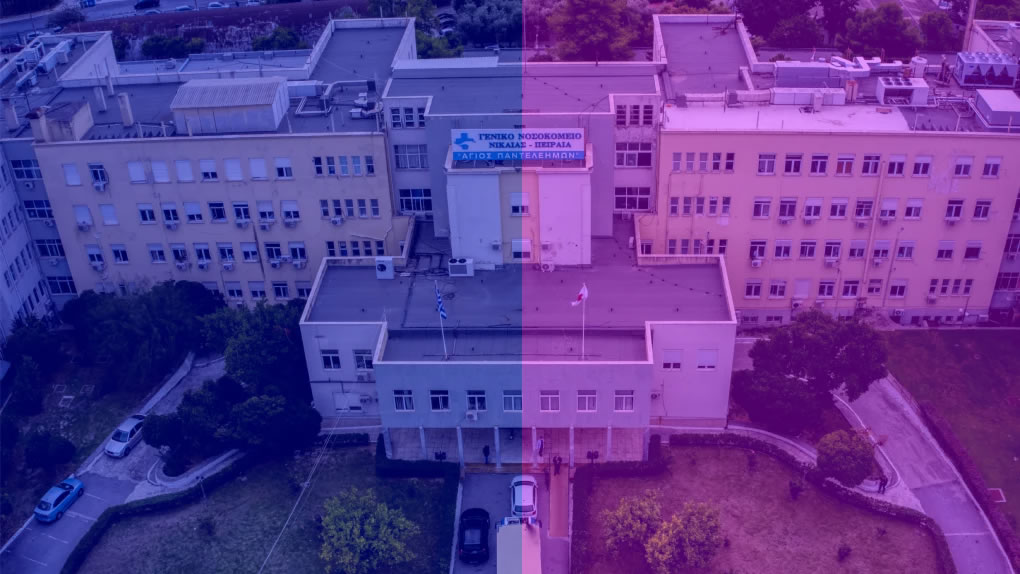About ERTRIAGE™


“With ERTRIAGE™, CAREPOI™ brings evidence‑based intelligence to the frontline of emergency medicine—transforming triage from a point‑in‑time judgement into a data‑driven, consistent, and adaptive decision engine.”
The word ‘triage’ has evolved from the French word ‘trier’ which was the term used by Baron Dominique Jean Larrey during the Napoleonic wars to manage the influx of injured soldiers for a few beleaguered doctors.
At CAREPOI™, our research and development teams have engineered ERTRIAGE™, a next‑generation, AI‑powered clinical decision support system built to revolutionize emergency department triage workflows.
Why ERTRIAGE matters
Upon arrival, patients in the emergency department (ED) often present with ambiguous symptoms and variable acuity. Traditional triage models, while useful, are limited by human subjectivity, time pressure, and incomplete data. ERTRIAGE addresses these pain points head-on, delivering:
- Enhanced clinical precision — by analyzing a rich tapestry of patient data, vital signs, history, lab/imaging inputs, and validated clinical scales (e.g. ESI, NEWS, ROSIER, HEART), ERTRIAGE helps assign the optimal triage level more reliably than rule‑based heuristics alone.
- Smarter care pathway routing — beyond simply categorizing acuity, ERTRIAGE suggests the most appropriate downstream care pathway (e.g. immediate resuscitation, fast‑track, observation, specialist referral), ensuring resources are matched to need.
- Speed and consistency under pressure — in fast‑paced, high‑volume EDs, the system can rapidly process ~50–60 decision inputs and deliver a recommendation in under a minute, reducing variability and accelerating decision cycles.
- Transparent, explainable AI — built with a knowledge‑graph underpinning and traceable decision paths, ERTRIAGE offers clinicians insight into why a recommendation was made, reinforcing trust and collaborative use.
ERTRIAGE AI system
Pioneering Research behind
At the core of ERTRIAGE™ by CAREPOI™ is a robust foundation of scientific innovation, clinical expertise, and cutting-edge health informatics. The system was conceived and developed based on pivotal advancements in predictive modeling and medical decision support, spearheaded by Dr. Lefteris G. Gortzis — a leading authority in health IT and a pioneer in emergency medicine informatics. Under his leadership, ERTRIAGE integrates the latest research in clinical reasoning, AI-driven triage, and evidence-based care navigation to deliver a truly transformative solution for emergency departments.
Predicting ICU Survival: A Meta-Level Approach
(Gortzis LG et al., BMC Health Services Research, 2008)
This groundbreaking study introduced a novel meta-level architecture for predicting survival rates of ICU patients by integrating diverse clinical scoring systems through a unified decision-support layer. The research demonstrated that fusing knowledge from multiple predictive models results in more accurate survival estimates than any single model alone.
Key Contributions to ERTRIAGE:
Meta-level fusion algorithms were adapted into ERTRIAGE to enhance real-time triage decisions.
Risk stratification logic built on this architecture allows ERTRIAGE to prioritize emergency cases with AI-powered clinical accuracy.
Inspired the modular decision engine that tailors triage recommendations to dynamic clinical variables, just like in ICU critical care settings.
Tracing and Cataloguing Knowledge in an E-Health Cardiology Environment
(Gortzis LG et al, Journal of Biomedical Informatics, 2008)
This study explored methods to systematically trace, map, and reuse medical knowledge in a cardiology-focused e-health system. By building a traceable framework for clinical decisions, the research set the stage for more transparent, explainable AI in medical settings.
Key Contributions to ERTRIAGE:
Inspired our knowledge graph infrastructure—capturing, indexing, and reusing clinical pathways for consistent triage decisions.
Enables ERTRIAGE to learn from patterns in patient symptoms, responses, and outcomes over time.
Informs the adaptive learning module that continuously evolves with new case data, physician feedback, and evidence-based protocols.
Investigating the prognostic accuracy of standardized data mining algorithms in intensive care unit
Journal of Computational Methods in Sciences and Engineering
ICUs are high-stakes environments where accurate, timely decision-making is crucial for patient outcomes. Traditionally, clinicians use various scoring systems, such as the APACHE II, SOFA, and ISS, to assess a patient’s condition and predict the likelihood of survival. These scores rely on various physiological parameters and laboratory results. However, clinical assessment tools have limitations, including variability in interpretation, the inability to process large volumes of complex data, and a dependency on clinician expertise and experience.
This observation was foundational in the development of the ERTRIAGE system, which would go on to address the limitations observed in the study. The idea behind ERTRIAGE is to create a more specialized, customized data mining approach that takes into account the unique dynamics of ICU environments, including patient-specific data and real-time clinical information, rather than relying solely on standardized models. By incorporating dynamic, context-aware algorithms, ERTRIAGE aims to improve the accuracy and relevance of prognostic predictions, thereby enhancing decision support in critical care settings.
In summary, the Gortzis study highlights the potential of data mining in ICU prognostication, but also emphasizes the need for more tailored, context-specific models to truly improve clinical outcomes. The ERTRIAGE system, inspired by the findings of this study, seeks to overcome the limitations of standardized algorithms by creating a more flexible and precise predictive tool for ICU clinicians.

ERTRIAGE AI system
The Result: An Intelligent ER Triage System
By merging the predictive power of ICU survival analytics with the traceability of cardiology decision support, ERTRIAGE delivers:
Smarter triage algorithms that mirror expert physician reasoning.
Faster patient flow with accurate priority assignments.
Clinical transparency that builds trust among medical staff and administrators.
With science at its core and real-world usability in its design, ERTRIAGE is not just a tool—it’s a transformation of emergency care, powered by the our visionary work and our commitment to evidence-based digital health.


ERTRIAGE AI system
In real-world ER settings
ERTRIAGE™ is currently deployed as an integral part of the triage workflow in several public hospitals across Greece, including Nikaia General Hospital, Larisa General Hospital, and Pyrgos General Hospital, serving a combined average of over 219,000 patient visits annually.
Emergency resources across Greek public hospitals are critically overburdened, making the efficiency and precision of triage decisions essential. Inadequate classification at triage can significantly compromise clinical outcomes: high-acuity patients may experience dangerous delays in care, while low-acuity patients may consume limited resources unnecessarily. This misallocation contributes to increased morbidity, extended wait times, and systemic strain.

ERTRIAGE AI system
Join the future of emergency care.
Introducing ERTRIAGE—an AI-driven triage platform that empowers clinicians to make faster, smarter, and safer decisions. Powered by real-time exams results and validated protocols like ESI, NEWS, and ROSIER, ERTRIAGE processes over 50 clinical parameters in real time. It delivers accurate, explainable triage recommendations in under 2 minutes.
Developed by clinical informatics experts and built on peer-reviewed research, ERTRIAGE offers a transparent and traceable decision-making engine. Discover how ERTRIAGE can work for your team.

ERTRIAGE AI system
Final Thoughts
ERTRIAGE is more than a product. It’s a platform, a tool, and a partner to the clinicians who serve on the frontlines of care. By combining AI, modern UX, secure engineering, and clinical wisdom, we’ve created a system that helps emergency teams focus on what matters most: the patient.
We believe this is the future of emergency triage—and we’re proud to have pioneered it.
